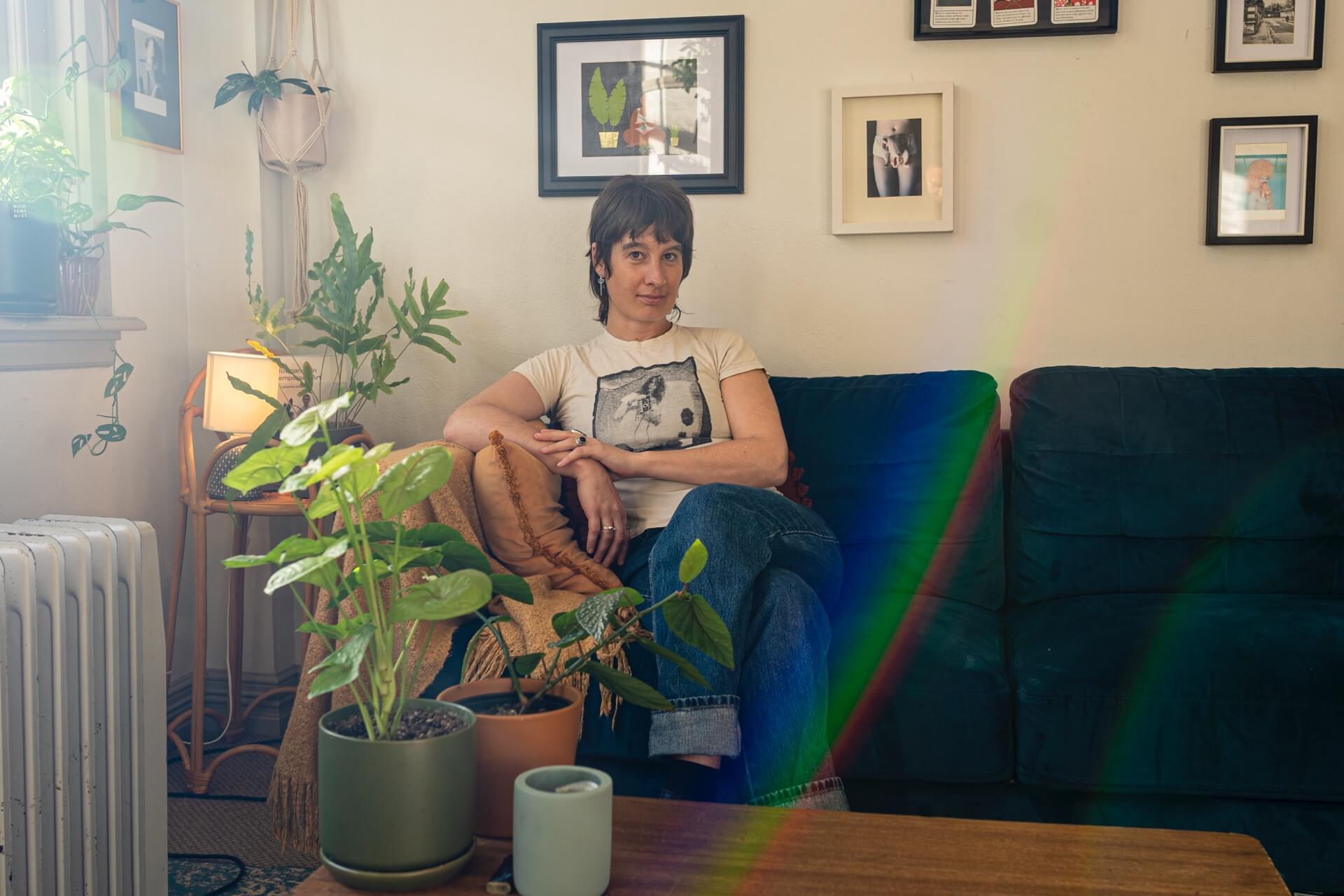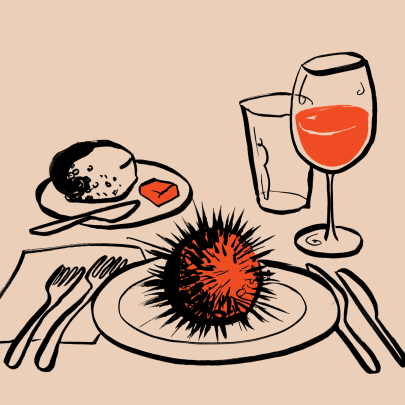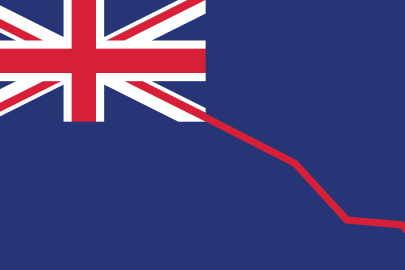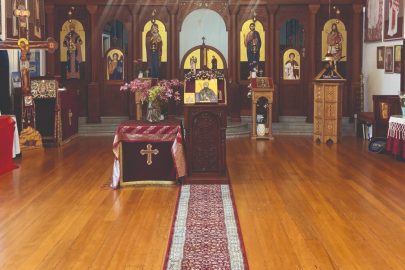Sep 8, 2023 People
Julia Croft’s central-city apartment is small but sunny. A thriving monstera plant hangs over a cosy armchair, and the most dominant piece of furniture is a full bookcase. A framed print of Sarah Lucas’s Chicken Knickers is displayed above the couch (“I love it so much,” she says), and above that some tarot cards featuring women artists like Frida Kahlo and Yayoi Kusama, which she later tells me she previously used as artistic prompts — to kickstart a day of work. Croft puts a glass of water directly on the worn wooden table, no coaster, then pulls her favourite book, Cruising Utopia: The Then and There of Queer Futurity by José Esteban Muñoz, off the shelf. It’s inked all over with notes. “This clearly helped me to figure some things out,” she laughs.
Croft is the new executive director of Auckland Pride. “I saw the role advertised and I went, ‘Oh, no, I’m a little baby. I can’t executive-direct anything!’” she says. Around that time, she was making work in the theatre space — preparing for her show The Wild, a joyful, sensory theatrical performance “designed for babies and children aged 0 to 99 plus”, and producing the five-day Festival of Live Arts (F.O.L.A.) at the Basement Theatre. Disruptions from Cyclone Gabrielle meant that F.O.L.A. was reduced to one day of shows, but Kaan Hiini, the head of the Auckland Pride board, was in attendance that day. The rest flowed from there. “I had to be a bit convinced,” Croft tells me. “But the more I thought about it, the more I thought it was possible.”
Although she originally trained as an actor, Croft started making performance art in 2015, which quickly became her main practice. “Alongside that I was working as a producer for other people, as a publicist, as a dramaturgue and teacher.” Being a practising artist, particularly in experimental art, forces you to be many things at once — master communicator, collaborator and team manager — and Croft says this created a “nice synergy”. “It’s all fed into it in a way that is not necessarily the traditional way of coming into a role like this, but it makes sense.”
Croft describes her previous performance work as “utopian”. It was driven, she says, by reimaginings of “the way the world worked, the way power works, and the way our bodies work”. She deploys ‘utopian’ in a light, self-mocking sort of way, poking fun at the core idealism she obviously holds. This same idealistic motivation brought her to Pride, however, and Croft is now convinced she’s landed in the right place. More than anything, her assuredness in purpose is what sticks out — she wants to give this role her all. It feels urgent. “Even though my work was really abstract, it was a morally and politically driven attempt at world-building. And I guess I see Pride as the same thing, really, in a different container. It offers a space to go, ‘We could get together and we could just imagine that the world could be different.’ It appeals to my stubborn sense of hope.”
Finding a space to keep hope alive is something that Croft has thought deeply about, especially in the context of stepping back as a practitioner. She’s seen that happen to countless others in the industry. “It’s really sad on one level, to me, because I really thought I was going to be the one that stuck it out. A lot of women — particularly women — get to a certain point in this industry, of being a freelance artist and maker, and just can’t do it any more. I felt like there wasn’t a place for me in the work I make here. I had resources — Creative New Zealand was really supportive — but there was very little emotional resource. I ended up feeling really lonely. So I thought, I could keep existing without that and complain about it, or I could try and move somewhere where I could affect some small level of change.” Somewhere like the team at Pride.
Auckland Pride is a festival primarily driven by a tight two: the executive director and the creative director, a role currently held by theatremaker Nathan Joe. Croft’s role, she says, is to work in with the vision of other people in the organisation — whether that’s honouring work Max Tweedie (Pride’s previous director) started, or empowering Joe to curate the festival he wants to see and then making it happen. “I mean, I’ll chuck in my reckons, because I’m full of reckons, but fundamentally I’m trying to find the partnerships and the resources and the money and the permissions to make Nathan’s vision possible.”
What Pride is and how the organisation exists in relation to the community have evolved significantly in the past few years. (See, for example, how the celebratory Pride Parade, a descendant of the Hero Parade of the 1990s, transformed from 2019 into the Pride March — the move was described last year as taking Pride back to its “activist roots”, in a display of solidarity against “hateful rhetoric”.) Croft is careful not to be too narrow or definitive in describing Pride, whether that’s as an arts festival, a community festival or a body for change. Pride is an “interface”, she says — to funding bodies, to sponsors, to spaces, to resources, to collective action. But it is also very much an activist space, and that activism largely manifests through creativity. “I think while both me and Nathan are artists, we’re artists that have come to the form of making art through a political lens. That’s the energy we bring to the organisation. We’re interested in seeing the idea of what activism is as really — like really — wide.”
Pride does not purport to represent the entire takatāpui and Rainbow community, but the organisation knows it has a responsibility to those it serves, thanks to its visibility and its close relationship with the artists who support it. In Pride’s capacity as advocate, Tweedie was often called on to address wider issues facing the community — one fiery tweet would turn into a television or radio interview. Tweedie’s assumption of a media-facing role inevitably played a part in how the public perceived and understood Pride’s values, particularly after the resignation of two members of the board in 2018 and withdrawal of corporate sponsorship following an internal debate over whether police should be allowed to march in uniform at Pride.
Tweedie was, essentially, the face of Pride. Croft does not want to be that. “I think that was very particular to Max’s exceptional skill set, exceptional media literacy, exceptional confidence. That’s not something I want to do or know how to engage in — we’re sitting here with a recorder, and I’m a bit nervous. I also have a very particular lived experience of queerness: I identified as queer quite late in life; I’m cis; I’m white. I don’t feel that’s a space I have any interest in occupying, nor do I think it would be very effective. Again, thinking of Pride in more of an interface way, I see our job as being more of a connector, or a relationship builder, rather than a spokesperson.”
Croft may want to take a lower-key approach (“doing the boring stuff to keep you on stage” is how she puts it), but being in a leadership position does demand, well, leadership — especially when the risks to some members of the community seem higher than ever. How will Pride be responsive to the substantial increase in anti-trans rhetoric, for example? “There’s power in collective, but collective is a complicated and shifting thing,” Croft says. “I don’t think the answer is disbanding community and having identity politics weed us into increasingly smaller micro-communities … It’s not going to be easy and gorgeous and next thing you know, it’s universal basic income on the beach. But there’s a muscularity in working for progress. There’s a muscularity in generosity and hope. I think the solution is to stay in the room together, to figure it out and be wrong. If you get it wrong, then you stay in the fucking room together, and we’ll just keep fumbling, together, into something that’s better than this.”
The answer, always, seems to go back to community. “Maybe community is something you do. I want to do community a bit. Even though this job is quote-unquote leadership, I do feel it’s a job in service of something.”
And will this influence the programme next year? Croft’s answer is a quick yes. She is emphatic that Pride has an unequivocal duty to meet the moment. “There’s an urgency to certain sectors of the community in this moment that are very particular to certain people, and it’s for us to meet that, support that and fight that in the best way we can.” Responding to that urgency while balancing it with the celebratory nature of the festival is, ultimately, the biggest challenge facing Pride. “There are things happening internationally that feel like dark clouds on the horizon, and how to respond to all that and not be defined by it is the hard bit; how to really prioritise joy and pleasure and humour and love and friendships and all that sentimental crap I like, while also not losing sight of the guts underneath … Letting both the rage and revolution and the party coexist and complement each other is the challenge.”
As for what else is upcoming, it’s still early days (when I talked to Croft, she’d been at Pride only three weeks). Croft says she and Joe share an interest in “decentralising” Pride — allowing the shape of the festival to evolve from more formal to “an unwieldy octopus”. More talk of ‘community’; more letting the artists inform the product, essentially. “When we were making F.O.L.A. Nest Fest and Flying Fetu were happening around the same time, so it felt like the rise of the mini-festival. I was like, maybe the days of the giant ‘I’m going to be the arts festival for the city’ is gone. That’s not how the world works right now. Artists being empowered to build their own kind of festival and networks under a large umbrella feels more in line with the politics of multiplicity and dispersions of power, but also more interesting than one curator and one executive director.”
What does Croft, personally, want to see? More music, for one. More events catered for the full spectrum of the age demographic, more bigness, more things of scale — and more punk, more grit, more anger. “I keep joking with one artist that we need to do Butt Week, but am I joking? Not really.”
–






